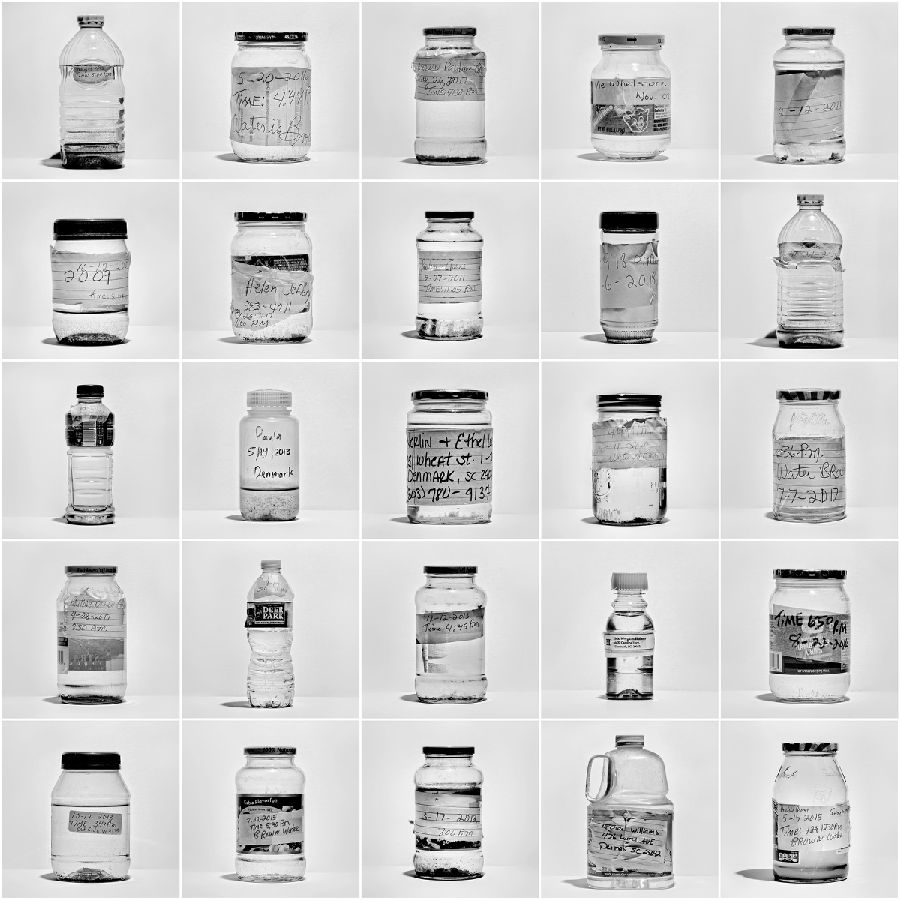Tapped Out
缺水的日子
Millions of Americans Lack Safe Access to Life's Most Essential Ingredient
數百萬美國人缺乏生存所需基本資源的保障
By Justin Worland
文/賈斯汀·沃蘭
The wheels are still attached to the house trailer that Pamela Rush calls home,
盡管被帕梅拉·拉什稱之為家的拖車生活仍在繼續,
but the 49-year-old mother of two is trapped.
這位現年49歲,有著兩個孩子的媽媽依然感到左右為難。
A lifelong resident of Lowndes County, Alabama,
從未離開過阿拉巴馬州朗茲縣的她一直靠傷殘補助維生,
she lives off disability checks, struggling to pay the bills on a ninth-grade education.
支付孩子九年教育的學費都很吃力。
It's hard to attribute her situation to any one cause—
她的困境很難歸結到單個原因上——
she was born in one of the poorest counties in one of the poorest states
她出生的縣是美國最貧困的州下最貧困的縣,
and, like the rest of the county's mostly African-American population,
該縣人口以非裔居多,和當地其他非裔一樣,
she wrestles with the legacy of slavery and systemized discrimination.
她也沒能擺脫奴隸制和制度化歧視等歷史遺留問題的陰影。

Just down the road from her home are the sharecroppers' quarters where she was born.
家門口那條路的前方便是她出生的佃農宿舍。
Yet the most immediate source of Rush's troubles is immediate:
盡管如此,困擾拉什的麻煩的直接來源卻是近在眼前:
the puddle of sewage that has collected in her backyard, brewing with human feces.
積在她后院,伴隨著人類糞便的廢水坑。
Whenever the toilet inside is flushed, the waste travels through a 10-ft. pipe straight to her backyard.
屋內的馬桶一沖水,廢水就會沿著10英尺(約3m)長的管道直通后院。
Thousands of the county's residents are in the same situation.
該縣還有成千上萬的居民有著同樣的困擾。
Local government won't pay to build infrastructure to connect them to proper wastewater-disposal lines,
當地政府不愿花錢投資基建,將各家的廢水疏導到專門的廢水處理管線,
so they're left to deal with the myriad problems caused by living in sewage that bubbles up into showers and bathtubs.
居民們便陷入了生活在污水里,經常有污水涌入噴頭和浴缸帶來的各種無奈之下。
A 2017 study of county residents found that 34% of participants suffer from hookworm,
2017年對該縣居民展開的一項研究發現,有34%的參與者深受鉤蟲困擾——
a parasitic infection contracted by walking barefoot on soil contaminated by fecal matter;
這是赤腳行走在被糞便污染的土地上引起的一種寄生蟲感染疾病,
among the issues associated with the disease is slow development in children.
這種病會進一步引發許多問題,兒童發育緩慢便是一例。
譯文由可可原創,僅供學習交流使用,未經許可請勿轉載。











